Building a business isn’t easy. And while your finances may be simple at first, as your company evolves, you’re likely to need financial leadership. Does that mean you need a CFO? Perhaps. But what does a CFO do, exactly? Let’s take a look at the role of the CFO so you can decide if this is the right position for you.
Table of Contents
What is a CFO?
A Chief Financial Officer (CFO) is an executive who oversees the financial activity of your entire company. In addition to managing your finance and accounting team, this person provides guidance and recommendations for how you can grow, scale, and fund your operations in a financially responsible manner. In other words, they look at everything about your business through a financial lens. Then they help you build strategies for achieving your short- and long-term goals given your financial constraints.
So, what does a CFO do on a day-to-day basis?
What Does the CFO of a Company Do?
The CFO’s responsibilities will vary depending on the nature and size of your business. Put another way, it’s one thing to manage the needs of a fuel-efficient Toyota. It’s quite another to manage a whole fleet of Ferraris, so it’s critical to find someone with relevant experience. That said, you can generally break down the CFO job description into four key areas:
The No-BS Financial Playbook for Small Business CEOs
Are you tired of making costly financial mistakes? Stop guessing and start growing. Learn how to create a scalable and valuable company while minimizing risk with this playbook from a serial entrepreneur who has been in your shoes.
Strategic Leadership
The CFO position is strategic. This person reviews the organization’s goals and collaborates with the other senior managers to develop long-term financial and operational strategies for making them a reality. Then, they ensure that you have the proper financial infrastructure to support your plans, measure your progress, and address issues as they arise.
Since the CFO must provide the financial information required to run the company, they often drive the strategic planning and budgeting process. First, they work with others in your organization to gather together plans and develop forecasts. Then they combine that information with other financial reports to create a comprehensive financial model and KPI dashboard. Finally, they act as your financial analyst to interpret this information each week or month, so they can report on your financial performance, provide insight into your current and future cash situation, and offer recommendations.
I sometimes hear people refer to the CFO as the “adult in the room.” A somewhat snarky way of acknowledging that this person is typically mature, with years of experience, and has the dubious honor of being eternally pragmatic. Yet, they must be equally capable of coming up with creative solutions. The CFO often acts as a trusted business partner to the CEO. They are a sensible presence that provides the financial guidance and advice the CEO needs to pursue the company’s vision.
As an executive team member with insight into the financial and operational health of the business, the CFO sometimes serves as the voice of the company, especially when the CEO is not available. For instance, they might present at company events, internal meetings, and to the Board of Directors. Therefore, they must be comfortable with public speaking, a quick thinker, and capable of fielding tough questions.
Team Management
The CFO is the most senior role on your finance and accounting team, so they oversee your entire finance function. Depending on the size and nature of your business, you will either have a flat structure where the CFO manages several people directly, or a pyramid structure with managers as team members, such as your Controller and the head of the treasury department.
Although your CFO will avoid getting bogged down with day-to-day bookkeeping, they are ultimately responsible for generating accurate and timely financial statements (balance sheet, income statement, cash flow statement, etc.). Then, they review and translate that information into meaningful, actionable insights to share with your management team.
Human Resource Infrastructure 360°™
Don’t let costly human resource issues creep up on you. Learn about the 5 components of HR Infrastructure 360°™ - our proprietary framework for building and supporting your team.
Besides leading your finance and accounting team, the CFO is often the key point of contact for your external financial relationships. These might include:
- Auditors – outside firms that review your financials and confirm that they are legitimate
- Tax Advisors – both for preparation and to ensure compliance
- Insurance Firms
- Real Estate Representatives
- Investors
- Commercial Bankers
- Government and Regulatory Representatives
Financial Infrastructure Development
Since the CFO is responsible for delivering accurate information about the company’s health, they typically develop the financial infrastructure that makes that possible. Ideally, one that can grow and scale with the company.
For instance, they may spearhead a project to get an appropriate accounting system in place and integrate it with other systems, like an ERP solution. They might also build mechanisms for collecting any additional data your organization requires.
In addition to improving your company’s financial tracking and reporting abilities, this person would establish a system of internal controls – policies and procedures to clarify expectations and avoid fraud. That may include the development of expense reimbursement policies or travel and entertainment policies. It could also involve creating internal processes or systems that ensure that certain functions, like accounts payable and accounts receivable, adhere to best practices.
Management and Resolution of Financial Challenges

Although all good CFOs should be able to handle the responsibilities above, it’s important to keep in mind that this person will also tackle any financial challenges that arise. So, it’s advisable to carefully consider your future needs before interviewing for the role of CFO.
For example, are you anticipating any of the following?
- An external audit
- A capital raising effort to pursue debt financing, equity financing, or some combination
- A merger or acquisition
- The development of an exit plan
- An initial public offering (IPO)
These endeavors require special skills, experience, and a qualified individual who can manage the entire process, typically a CFO. If your candidate doesn’t have the necessary background, consider looking elsewhere or plan to hire external help when such projects arise.
Of course, now that I’ve answered the question of “what does a CFO do,” I imagine you’ll have a few more. So, to make it easy for you, allow me to address those questions here.
How Do You Know You’re Ready to Hire a CFO?
If you are running a small- to mid-sized company and your needs are relatively simple, you may not need the services of a CFO for some time. In this case, a bookkeeper, accountant, or CPA can suffice. But here are a few signs that it may be time to seek financial leadership:
- Your CEO is spending way too much time answering questions from your accountant.
- You have a complicated business model and need someone who can translate a lot of financial data into actionable insights so your executive team can make decisions.
- You need executive-level financial reports to present at your quarterly Board meetings.
- You’re about to embark on a significant financial project, such as a fundraising effort, acquisition, or an overhaul of your financial infrastructure.
While it can be tempting to promote your accounting manager into the role, remember that accountants might not possess the right skill set. Although some CFOs grow into the role after serving as public accountants, others skip the CPA and work their way into the position through corporate finance or investment banking. It is also fairly common for CFOs to round out their technical training with an MBA. That provides them with the business and operational acumen necessary to succeed in the CFO role.
How Much Does a CFO Make?

CFO salaries vary depending on experience, the size of the company, and the industry in question. In general, however, a small company (~$10MM in revenues) can expect to pay about $225,000 to $275,000 per year as a base salary plus bonus, benefits, taxes, overhead, and long-term incentives (equity), which translates to anywhere from $300,000 to $400,0000 per year or more.
A full-time CFO, however, might be more than you need. When this is the case, you can hire a fractional CFO to help manage your accounting, translate your data into insights, and handle special projects for just a fraction of the cost. Check out our full-time vs fractional CFO calculator to explore the potential savings.
How Can You Find a CFO?
Hiring a CFO is much like hiring any other type of executive, and it can be helpful to get assistance finding, screening, and interviewing candidates. For instance, at The CEO’s Right Hand, we provide executive search services to clients who have outgrown our outsourced CFO services. Alternatively, you could employ one of the more traditional executive search firms.
Although you should post the role on LinkedIn and your website, we have found it more effective to pursue people proactively. The best CFOs are typically those who already have a job and are not looking for a new role, so use your network and ask around.
What Does a CFO Do: Key Takeaways
The CFO plays a crucial role in your executive management team. This person brings important financial insights to the table and provides the guidance you need to make financially sound business decisions. In addition to serving as financial advisors, they lead your internal finance and accounting team, manage your financial relationships, and build a financial infrastructure to support your company’s growth. And, of course, you will rely on them to help you resolve any unique financial challenges your organization encounters.
But don’t worry if you’re not quite ready. You don’t need to hire a full-time CFO right away. At The CEO’s Right Hand, we provide CFO services on a part-time basis, so you can get the help you need at just a fraction of the cost.
Editor’s Note: Full-time CFO salary data was updated in October 2024.





